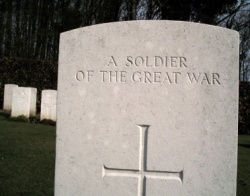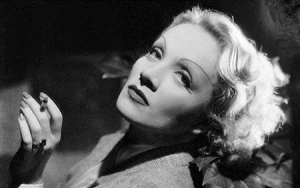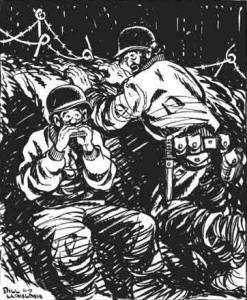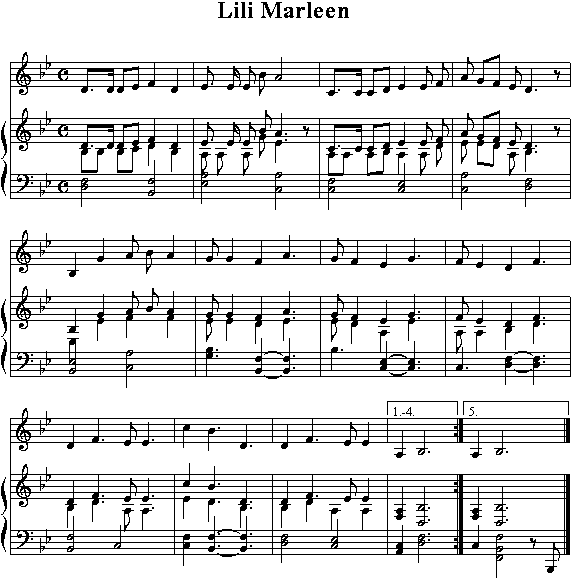- The Harmonica At War – Lili Marlene [..with tab]
- Лили марлен ноты для губной гармошки
- ЛИЛИ МАРЛЕН
- ЛИЛИ МАРЛЕН
- Lilli Marlene (Diatonic) Harmonica Tabs
- No Information
- Lilli Marlene (Diatonic) Harmonica Tab
- for Diatonic
- Lilli Marlene (Diatonic) Harmonica Tab
- Lilli Marlene (Diatonic) Harmonica Tab
- Lili Marlene Harmonica Tabs
- No Information
- Lili Marlene Harmonica Tab
- for Diatonic
- Lili Marlene Harmonica Tab
- Lili Marlene Harmonica Tab
- Лили марлен ноты для губной гармошки
The Harmonica At War – Lili Marlene [..with tab]
LILI MARLENE [..with tab]

Had we been shovelled onto a grimy conveyor belt and pitched alongside millions of innocents into the inferno of the Great War (1914-18), there is a strong chance we would have had a musical companion. An emollient for the mental and physical agonies of front line duty.
Portability, cost and availability predetermined the choice of instrument. And while a variety found their way to the front, it was the humble harmonica that became the proprietary antedote to the sting of industrialised warfare. And it’s probably the reason why so many Europeans still relate stories of a family elder who played the mouth organ.
This Remembrance Day is no different to any other – they are equally important. As Santayana famously wrote: Those who cannot remember the past are condemned to repeat it. It’s just that this year we have the novelty of an extra number 11. At the eleventh hour (GMT), on the eleventh day, of the eleventh month – of the eleventh year – we remember the fallen.

Following its innovation as a musical instrument, there is plenty of evidence, both documentary and archaelogical, to show that the harmonica has performed significant duty in wartime. From the American Civil War, through two World Wars and into the second millenium, the tin sandwich has withstood the slings and arrows of outrageous fortune.
In prelude to our The Harmonica At War series, while we could pay tribute by tabbing The Last Post, or a popular British First World War song such as Pack Up Your Troubles, we’ve chosen a song written during the First World War, but made famous in World War II; Lili Marlene.
My dad was in the 11th armored division and said when German prisoners were marched by, he would play Lily Marlene [sic] on his harmonica. Some would smile and nod, others would weep. War is hell on the soldiers no matter whose side fate puts you on. [TheDrummer51]

In 1915, shortly before leavig for the Russian front, Hans Leip – a soldier in the German Imperial Army – put pen to paper and produced a love poem which would eventually come to be known as Das Lied eines jungen Soldaten auf der Wacht, or The Song Of A Young Sentry. It was eventually published in 1937 in a poetry collection which encapsulated the melancholy of a young guardsman pining for his sweetheart.
The words were eventually put to music in 1939, with a husky Lale Andersen recording what was to become a classic wartime chanson. The tune was entitled Lile Marlene. It’s rise to popularity was almost by chance. A soldier working at Radio Belgrade, the German forces network in Europe, had happened upon it during a visit to Vienna. Upon his return, the song was broadcast by the radio station and soon became adopted amongst Axis and Allied troops alike.
Enjoyed throughout Europe and North Africa, the Allied authorities tried to discredit the song by implying that its subject was a lady of easy virtue. A take which may have been perpetuated by Marelene Dietrich’s rendition, but certainly not what Hans Leip had in mind when he first put pen to paper.
That you lov’d me, you’d always be
5B 5B..5B 5D 6B 5B
5D 5B..5D 7B..7D
4D 4D 5B..5D..6B
7D..6D 6B..5D 5B
6D 7D 7B..7D 6D
6D 6B 7B
6D..6B 5D 6D
6B..5D 5B 6B
5B 6B 5D..5D 8D 7B
5B 6B 5D..5D 3D 4B
My Lili of the lamplight

It featured two hapless GIs and a whole heap of trench humour. One particular edition depicts the two characters in a foxhole with a harmonica and reference to the tune Lili Marlene.
“Th’ krauts ain’t followin’ ya so good on ‘Lili Marlene’ tonight, Joe. Ya think maybe somethin’ happened to their tenor?” Permission for reproduction requested.
My own Lili Marlene
In 1991, an unemployed German trucker who was lamed and partially blinded during a road accident lay in a coma. He lost his health, he lost his job and he lost his marriage. But Michael Hirte pulled through. He picked up his harmonica, busked the streets of Potsdam and went on to win Germany’s TV talent show Das Supertalent in 2008.. playing the harmonica. Here he is playing, of course, Lili Marlene!
Источник
Лили марлен ноты для губной гармошки
Форум сайта HARMONICA.RU
Всё о губной гармонике
- Текущее время: Пт май 28, 2021 6:54 am
- Часовой пояс: UTC+03:00
ЛИЛИ МАРЛЕН
ЛИЛИ МАРЛЕН
Сообщение Unknown » Ср фев 26, 2003 2:48 am
кто -нибудь знает где достать расклад нот для того, чтобы мелодию ЛИЛИ МАРЛЕН играть на гармошке?
Сообщение Blq » Ср фев 26, 2003 6:56 pm
Сообщение Slava Chernov » Чт фев 27, 2003 2:38 am
Асистант, это конечно универсальный метод, и всем советую, но с Lilit Marlen уже есть табы.
Мне их где-то год назад прислал Иван (Vetka), что-то давно его не видать.
Вступление: -5 –5 –5 –5 –5 –5 –5 -6 –5 –5
4 4 4 4 4 4 4 -5 4 4 3 3
6 -5 5 –5 6 5 –5 –5 –5 7 –7
-5 –5 –5 6 –6 7 –7 -6 6 –5 5
6 –6 –7 7 –7 –6 –6 6 –7 –6 6 –5 –6 6 –5 5 6
5 6 –5 –5 –8 7
5 6 –5 –5 –3 4
Любителям немчятины, вот еще:
Horst Wessel — Die Fahne Hoch
6 6 –5 5 6 7 –7 –6 6 6 –5
-5 –5 5 –4 6 6 6 –6 6 5
6 5 6 7 8 8 8 –8 7 –7 7 –6 –6
7 –8 7 6 7 –7 –7 –6 –7 7
6 5 6 7 8 8 8 –8 7 –7 7 -9 –9
7 –8 7 8 7 –7 –7 –6 –7 7
Давно хотел сдалть раздел мелодий с немецкими песенками, да так руки и не дошли. Если кому интересно, давайте замутим, у меня даже рисунок Петровича для этого есть.
Источник
Lilli Marlene (Diatonic) Harmonica Tabs
No Information
Lilli Marlene (Diatonic) Harmonica Tab
for Diatonic
Lilli Marlene (Diatonic) Harmonica Tab
Lilli Marlene (Diatonic) Harmonica Tab
5 5 5 -5 6 5
//: Un–der–neath the lan-tern /
Time would come for roll call,/
-5 -5 -5 7 -7
by the bar-rack gate /
time for us to part,/
-4 -4 -4 5 -5 -5 6
dar-ling I re-mem – ber the/
dar-ling I’d car-ress you and/
-7 -6 6 -5 5 4
way you used to wait, ’twas/
press you to my heart; and /
-6 -7 7 -7 -6 -6 6 -7 -6
there that you whis-pered/ten-der–ly, that/
there ‘neath that far off/lan-tern light, I’d/
6 -5 -6 6 -5 5 6 5
you lov’d me, you’d/al—ways be, > my/
hold you tight, we’d/kiss Good night,> ”
6 -5 -5 -8 7 6 5 6 -5 -5 -3
Lil-li of the/lamp-light, my/own Lil-li Mar-/
4
Lene. / / :// (back to 2nd verse)
5 5 5 -5 6 5
3rd v. //: Or-ders came for sail-ing/
4th v Rest-ing in a bil-let
-5 -5 -5 7 -7
some-where ov–er there,/
just be–hind the line,/
-4 -4 -4 5 -5 -5 6
all con-fined to bar-racks was/
ev-en tho’ were part-ed your/
-7 -6 6 -5 5 4
more than I could bear; I/
lips are close to mine; you/
-6 -7 7 -7 -6 -6 6 -7 -6
knew you were wait-ing / in the street, I /
wait where that lan-tern/soft-ly gleams, your/
6 -5 -6 6 -5 5 6 5
heard your feet, but/could not meet; > my/
sweet face seems, to /haunt my dreams, > ” /
6 -5 -5 -8 7 6 5 6 -5 -5 -3 4
Lil-li of the/lamp-light my/own Lil-li Mar-/lene/
Источник
Lili Marlene Harmonica Tabs
No Information
Lili Marlene Harmonica Tab
for Diatonic
Lili Marlene Harmonica Tab
Lili Marlene Harmonica Tab
Note: Anne Sheldon recorded the English version
in 1944. The version played on the radio during
World War II was sung by Marlene Deitrich.
5 5 5 -5 6 5
Underneath the lantern
-5 -5 -5 7 -7
By the barrack gate,
-4 -4 -4 5 -5 -4
Darling I- remember
-5 -7 -6 6 -5 5
The way you used to wait.
6 -6 -7 7 -7 -6 -6 6 -7
‘Twas there that you whispered tenderly,
-6 6 -5 -6
That you loved me,
-5 -5 5 6
You’d al-ways be,
5 6 -5 -5 -8 7 6
My Lili of the lamplight,
5 6 -5 -5 -4 5
My own Li-li Marlene.
Time would come for roll call,
Time for us to part,
Darling I’d caress you
And press you to my heart,
And there ‘neath that far off lantern light,
I’d hold you tight,
We’d kiss good-night,
My Lili of the lamplight,
My own Lili Marlene.
Orders came for sailing
Somewhere over there,
All confined to barracks
Was more than I could bear;
I knew you were waiting in the street,
I heard your feet,
But could not meet,
My Lili of the lamplight,
My own Lili Marlene.
Resting in a billet,
Just behind the line,
Even tho’ we’re parted,
Your lips are close to mine.
You wait where that lantern softly gleams.
Your sweet face seems
To haunt my dreams.
My Lili of the lamplight,
My own Lili Marlene.
5 6 -5 -5 -8 7 6
My Lili of the lamplight,
Источник
Лили марлен ноты для губной гармошки
Lili Marleen
(Лили Марлен)
Music: Norbert Schultze (1911-2002), 1938
Text: Hans Leip (1893-1983), 1915
1. Vor der Kaserne
Vor dem großen Tor
Stand eine Laterne
Und steht sie noch davor
So woll’n wir uns da wieder seh’n
Bei der Laterne wollen wir steh’n
Wie einst Lili Marleen. (bis)
2. Unsere beide Schatten
Sah’n wie einer aus
Daß wir so lieb uns hatten
Das sah man gleich daraus
Und alle Leute soll’n es seh’n
Wenn wir bei der Laterne steh’n
Wie einst Lili Marleen. (bis)
3. Schon rief der Posten,
Sie blasen Zapfenstreich
Das kann drei Tage kosten
Kam’rad, ich komm sogleich
Da sagten wir auf Wiedersehen
Wie gerne wollt ich mit dir geh’n
Mit dir Lili Marleen. (bis)
4. Deine Schritte kennt sie,
Deinen zieren Gang
Alle Abend brennt sie,
Doch mich vergaß sie lang
Und sollte mir ein Leids gescheh’n
Wer wird bei der Laterne stehen
Mit dir Lili Marleen? (bis)
5. Aus dem stillen Raume,
Aus der Erde Grund
Hebt mich wie im Traume
Dein verliebter Mund
Wenn sich die späten Nebel drehn
Werd’ ich bei der Laterne steh’n
Wie einst Lili Marleen? (bis)
mp3 — запись Лале Андерсен, 1939
Стихотворение сочинил уроженец Гамбурга, сын портового рабочего Ханс Ляйп в 1915 году, стоя на посту в Берлине и ожидая отправки на русский фронт. В одном образе он объединил имена двух своих подружек, с которыми в то время встречался — дочери бакалейщика Лили и медсестры Марлен. После войны Ляйп стал поэтом и художником, и в 1937 стихотворение вышло в его сборнике как «Песня молодого солдата на посту». В 1938 году в Цюрихе было положено на музыку Норбертом Шульце, и в 1939 песня записана на пластинку работавшей с Шульце кабаретной певицей Лале Андерсен (1905-1972) под заглавием «Девушка под фонарем». Запись успеха не имела, но вскоре началась Вторая мировая война.
В 1941 в оккупированном Белграде было создано немецкое «Солдатское радио Белграда» для вещания на Европу и Средиземноморье. Ставить в эфир было нечего, так как большинство доступных записей были запрещены Министерство пропаганды. Сотрудника радиостанции, отправлявшегося в Вену, просили разыскать что-нибудь для эфира. Среди привезенных дисков была эта малоизвестная песенка, случайно найденная в каком-то магазинчике. За неимением большого выбора, «Лили Марлен» стали регулярно крутить по «Радио Белграда». Успех в войсках был огромный. Министерство пропаганды запретило песню, так как та «подрывала моральный дух солдат», но вынуждено было уступить требованиям войск, желавшим слушать «Лили Марлен». «Радио Белграда» стало передавать песню ежедневно в конце эфира, в 21.55. Пока она звучала (3 минуты), бои обычно прекращались — союзники тоже слушали песню.
«Лили Марлен» стала самой известной песней Второй Мировой войны и была переведена на несколько десятков языков. См., например, на английском, французском, испанском, итальянском, а также русские тексты Иосифа Бродского и Наталии Краубнер (к последнему см. mp3 в исполнении Натальи Шмидт). Вошла в репертуар Марлен Дитрих (на английском и немецком). Была создана также антифашистская немецкая версия «Ich muß heut’ an Dich schreiben» исполнявшаяся Люси Маннхейм (mp3, 1943): в ней Лили Марлен пишет письмо любимому на фронт с пожеланием увидеть Гитлера висящим на фонаре — эту запись союзники крутили по радио для немецких солдат.
На фризском острове Лангеоог в Нижней Саксонии Лили Марлен и Лале Андерсен поставлен памятник — девушка, ждущая под фонарем. Райнер Вернер Фассбиндер в 1980 снял одноименный художественный фильм об истории песни c Ханной Шигуллой в главной роли.
Подробнее история песни — http://de.wikipedia.org/wiki/Lili_Marleen. Фонограммы и тексты на разных языках — http://ingeb.org/garb/lmarleen.html.

Лале Андерсен
Источник


